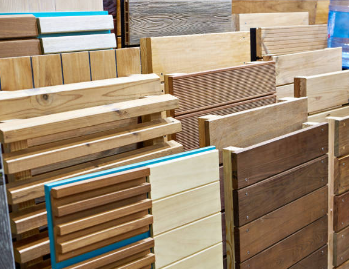The Insight of Flooring: WPC vs. LVP
When it comes to choosing the perfect flooring option for your home or office, the market offers a wide variety of choices. Two popular options that often confuse buyers are WPC (Wood Plastic Composite) and LVP (Luxury Vinyl Plank). Both WPC and LVP have gained significant attention in recent years due to their durability, versatility, and affordability. In this article, we will explore the key differences between WPC and LVP to help you make an informed decision.
1. Understanding WPC Flooring
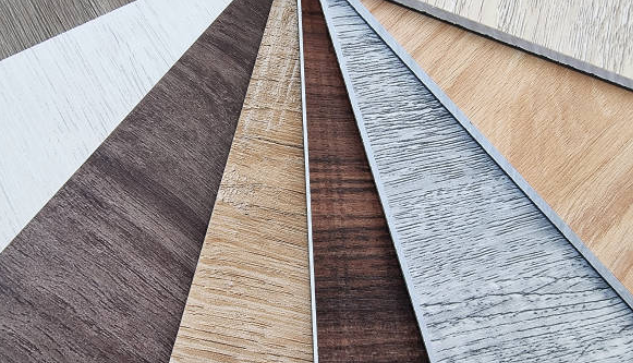
WPC, also known as Wood Plastic Composite, is a hybrid flooring material that combines the best features of wood and plastic. It is composed of a core layer made from recycled wood fibers and thermoplastic resins, providing excellent stability and water resistance.
The top layer is a printed vinyl design, which can mimic the appearance of various natural materials such as hardwood or stone.
The Advantages of WPC
One of the primary advantages of WPC flooring is its superior water resistance. Unlike traditional hardwood flooring, WPC can withstand moisture and spills without warping or cupping.
Additionally, the thermoplastic core provides enhanced stability, making WPC an ideal choice for areas with fluctuating humidity levels. WPC is also highly durable, scratch-resistant, and easy to maintain, making it suitable for high-traffic areas.
2. Introducing LVP in Flooring
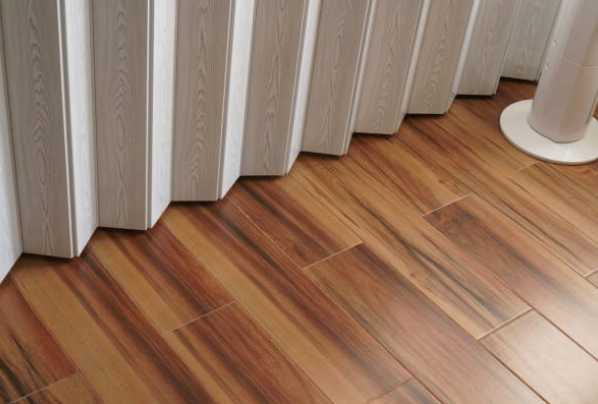
LVP, or Luxury Vinyl Plank, is a type of vinyl flooring that closely resembles hardwood. It consists of multiple layers, including a wear layer, a printed design layer, and a core layer made of PVC (Polyvinyl Chloride). The wear layer protects the floor from scratches, stains, and fading, while the printed layer creates the desired aesthetic appeal.
The Benefits of LVP
LVP offers several advantages over traditional hardwood flooring. Firstly, it is significantly more affordable, making it an attractive option for budget-conscious buyers.
LVP is also highly resistant to moisture, making it suitable for areas prone to spills or high humidity.
Additionally, LVP is easy to install, thanks to its interlocking mechanism, allowing for a hassle-free DIY installation process.
You May Also Want to Explore:
Homogeneous Vinyl Sheet Floor in stock
Flooring Installation Accessories
Why WPC Flooring is Expensive?
3. Discover Differences between WPC and LVP Floors
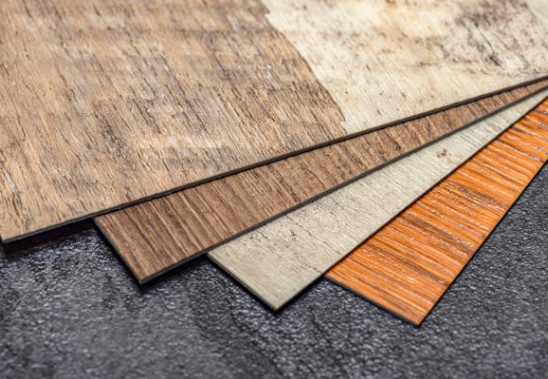
Comparing Durability
When it comes to durability, both WPC and LVP are excellent choices. However, WPC flooring tends to have a slight edge due to its rigid core construction.
The thermoplastic core of WPC provides additional stability, making it less susceptible to dents and scratches. Nevertheless, both WPC and LVP are designed to withstand heavy foot traffic and can last for many years with proper care.
Exploring Installation Options
Both WPC and LVP offer versatile installation options to suit different needs. WPC can be installed as a floating floor, meaning it does not require adhesives or nails. This makes it an ideal choice for DIY enthusiasts. On the other hand, LVP can also be installed as a floating floor or glued down for added stability. Professional installation is recommended for glued-down LVP to ensure optimal results.
Comparing Aesthetics
When it comes to aesthetics, both WPC and LVP offer a wide range of design options. WPC can mimic the look of various natural materials, including hardwood, stone, and tile. The printed vinyl design layer allows for intricate patterns and textures, giving WPC a realistic appearance. Similarly, LVP is available in a plethora of styles, ranging from traditional to modern, allowing you to achieve the desired aesthetic for your space.
Maintenance and Care
Both WPC and LVP are known for their low maintenance requirements. Regular sweeping or vacuuming, along with occasional mopping using a manufacturer-approved cleaner, is usually sufficient to keep these floors looking their best. However, it is important to note that excessive moisture should be avoided, as it can seep into the seams and cause damage over time.
Environmental Considerations
When it comes to environmental impact, both WPC and LVP have their advantages. WPC is often made from recycled materials, reducing the demand for virgin materials. On the other hand, LVP is generally considered more eco-friendly due to its composition of PVC, which can be recycled. It is essential to check the specific manufacturing processes and certifications of the products to ensure their sustainability.
Bonus: WPC Flooring Brand Manufacturers
When it comes to manufacturing WPC (Wood Plastic Composite) flooring, selecting the right manufacturer can significantly impact the quality and durability of the flooring. Among the various manufacturers in the industry, Changzhou Bogao Decoration Materials Co., Ltd. stands out for several compelling reasons.
Strengths of Changzhou Bogao Decoration Materials
1. Industry Experience: Changzhou Bogao Decoration Materials brings years of specialized experience in WPC flooring, ensuring products meet the highest standards of quality and performance.
2. Innovative Technology: They utilize advanced manufacturing technologies that enable them to produce WPC flooring that not only looks great but is also highly resistant to wear and tear, water, and environmental damage.
3. Wide Product Range: The company offers a diverse range of WPC flooring options, including various colors, styles, and finishes, allowing customers to choose the perfect match for their decor and functional needs.
4. Eco-Friendly Materials: Changzhou Bogao is committed to sustainability, using eco-friendly materials that are safe for both the environment and home use. This commitment is particularly appealing to environmentally conscious consumers.
5. Customer-Centric Services: Their focus on customer satisfaction is evident in their comprehensive services, from detailed product consultations to post-purchase support, ensuring a seamless experience for their clients.
6. Global Reach: With a robust distribution network, Changzhou Bogao Decoration Materials can efficiently supply their products to a global clientele, making them a reliable partner for international projects.
Quote Inquiry
By maintaining a strong emphasis on quality, innovation, and customer service, Changzhou Bogao Decoration Materials has positioned itself as a leader in the WPC flooring manufacturing industry. Their products are an excellent choice for anyone looking to combine aesthetics with long-lasting durability and environmental sustainability in their flooring options.
4. FAQs of Flooring Choices
1. What does LVP stand for in flooring?
- LVP stands for Luxury Vinyl Plank. It is a type of flooring that mimics the appearance of natural wood but is made from vinyl, offering a durable and cost-effective alternative.
2. What is LVP flooring made of?
- LVP flooring is primarily made from polyvinyl chloride (PVC). It consists of several layers: a backing layer, a core layer, a printed vinyl layer that mimics real wood or stone, and a protective wear layer on top for durability.
3. Is LifeProof flooring good?
- LifeProof flooring is well-regarded for its durability, water resistance, and ease of installation. It's a popular choice for areas prone to moisture and high traffic, offering a good balance between quality and value.
4. How to buy WPC floors in stock (choose Changzhou Bogao Decoration Materials)?
- To purchase WPC flooring from Changzhou Bogao Decoration Materials, visit their official website or contact their sales department directly to check available stock. They offer a variety of WPC flooring options that are ready for immediate shipment.
5. How does WPC flooring compare to traditional hardwood?
- WPC (Wood Plastic Composite) flooring offers distinct advantages over traditional hardwood, including enhanced water resistance, easier installation, and greater durability in high-moisture environments. While it provides the aesthetic of wood, it requires less maintenance and is generally more cost-effective, making it an excellent alternative for areas where hardwood might be impractical.
5. Making the Right Choice
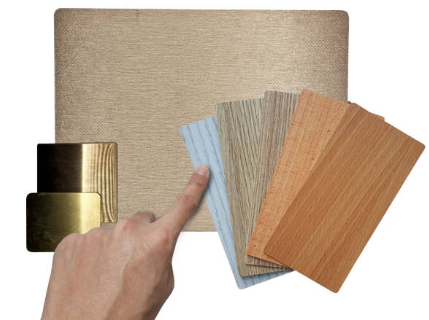
Ultimately, the choice between WPC and LVP depends on your specific needs and preferences. If you prioritize enhanced water resistance and stability, WPC may be the better option.
On the other hand, if affordability and easy installation are your primary concerns, LVP might be the ideal choice. Consider factors such as durability, aesthetics, installation requirements, and maintenance when making your decision.

